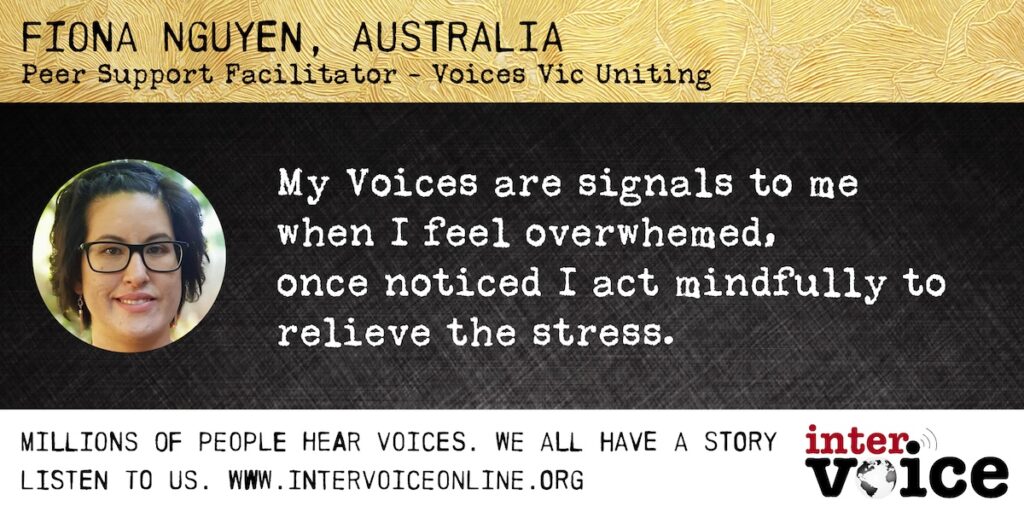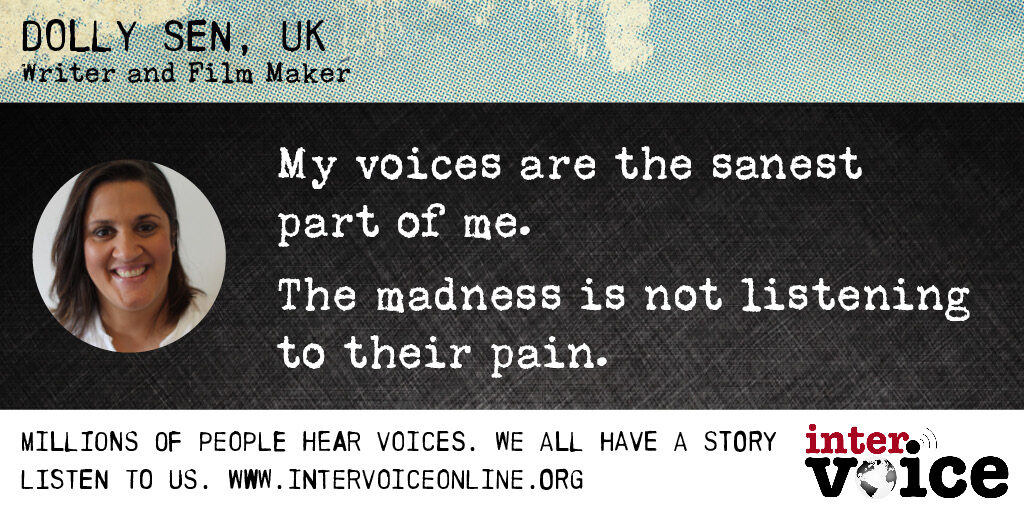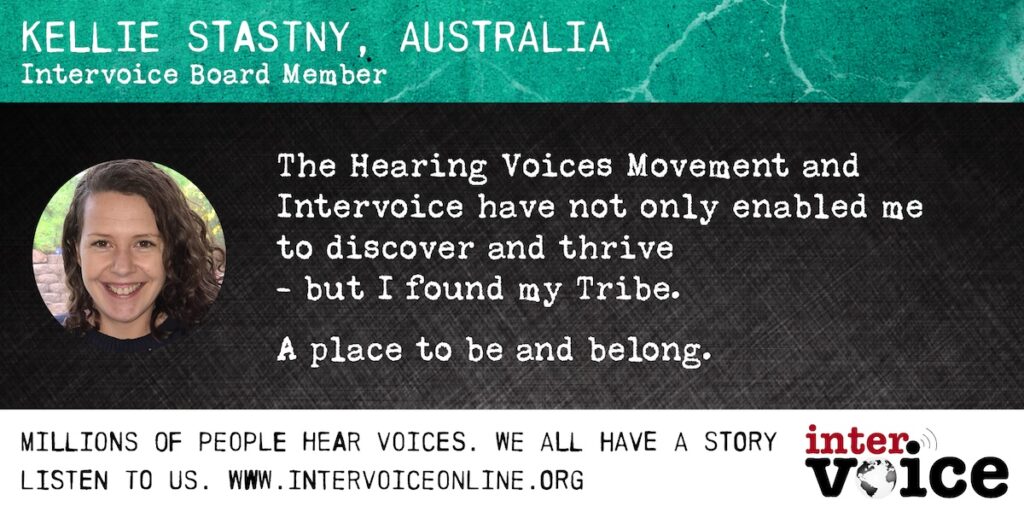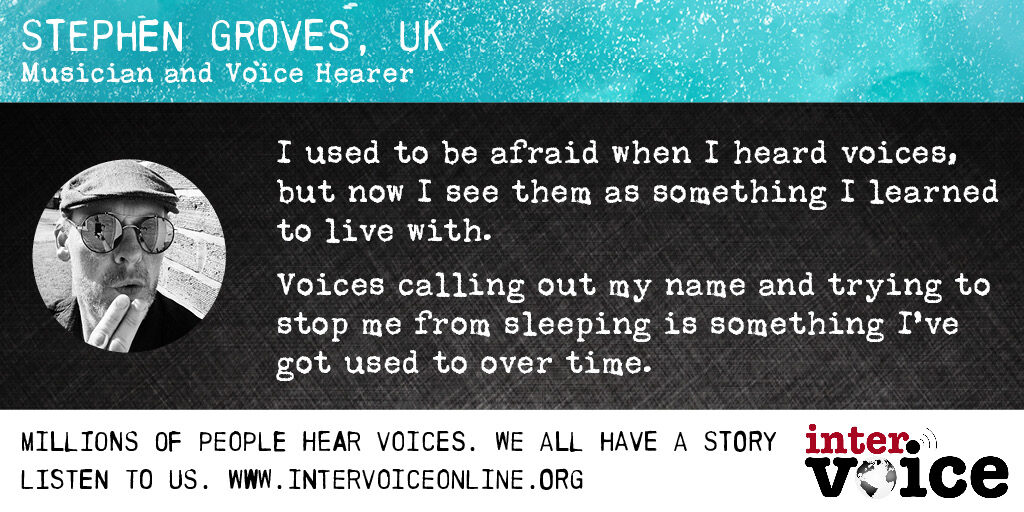Conducted on behalf of the International Hearing Voices Projects Board by Claire Powell
Download Intervoice Survey Results – June 2012
The following is an excerpt of the report. Please download the full document to read people’s views on Intervoice in more detail.
Introduction
Intervoice currently comprises 23 national networks of varying size and membership. Some networks include over 100 groups across a country; others are the work of a small number of individuals with perhaps one or two support groups up and running.
Aims of The Survey
The Board of Intervoice decided to carry out this survey to seek stakeholder views on:
- how participants envision the structure and aims of Intervoice
- how Intervoice can best support the growing number of national networks
- Activities, i.e.
- training
- websites
- the newsletter
- research
- congress
Methodology
The web survey was carried out between December 2011 and May 2012.
The web survey (See Appendix 8 for the full text) covers the seven main areas mentioned above. Demographic information about individual respondents was collected in order to gain a profile of who responded and contextualise responses to the rest of the survey. There were a variety of open and closed questions, to ensure opportunity for free text answers.
There were two pilot stages to test the usability of the survey: the initial one was across four countries (UK, Denmark, Netherlands and Australia), primarily to check the language was clear for non native speakers of English, and the second conducted in the UK to ensure the website and question links were functioning. Both of these stages resulted in changes and improvements to the survey.
The final web survey was advertised through the Intervoice newsletter, website, facebook and twitter. The surevey was as flexible as possible in order to encourage as many people as possible to take part, so the survey link was open and anonymous and anybody could fill it in. Partial responses were accepted. It was responded to by 58 participants in 14 different countries.
The survey was followed by telephone interviews (See Appendix 7 for the questions asked) carried out between April 2012 and June 2012 to follow up in greater detail on national networks and their needs, training, research and Intervoice’s structure and aims.
Interviews were carried out with those who expressed an interest through the web based survey or who were put forward as being interested by members of Intervoice. In order to make the interviews as representative of the diversity of the network as a possible, only one person was interviewed from each country. At this point we were seeking to get a spread of responses from different countries rather than detailed multiple views of individual countries/networks.
15 individuals were contacted in the first instance for interviews and 9 interviews were carried out. Seven of the interviews were conducted over Skype and two were written interviews. Given the time differences involved and the practicalities of organising interviews with part time workers, interviewees were offered slots Monday to Saturday, 7am to 11pm, UK time. The questions were open-ended and used as a guide to give participants an opportunity to discuss any issues they felt were important. Everybody answered all questions.
All survey results were anonymous because named responses can compromise people’s willingness to give negative feedback.
Issues & Recommendations for Further Discussion
In all the interviews and the survey, everybody is passionate about the overall ethos of Intervoice – its focus on recovery, the hopeful message and the importance of peer support. It is the finer details of how the ethos should be put into practice where there is disagreement and many interviewees and survey respondents want the freedom to put the ethos into practice in a locally appropriate and flexible way.
All interviewees strongly agree that Intervoice should support all sensory experiences and beliefs and that Intervoice should be explicit about this. There are more mixed feelings about this from the survey data which might be related to whether or not people are participants in support groups.
Networks
Dedicated individuals are working exceptionally hard to make networks happen. From the interviews it is clear that people are working on shoe string budgets and some networks could disappear if specific individuals were unable to continue. Many are working voluntarily and feel very isolated in what they do.
Very young networks are already supporting each other with materials, ongoing conversations and translation.
Starting and growing the network is made less difficult where there is an existing network of community psychiatry recovery centres (e.g. Hungary), user led organisations (e.g. Italy) or voluntary sector organisations (e.g. Australia – Richmond Fellowship). Partnerships with professionals and statutory services are a major obstacle to promoting the Hearing Voices Approach, particularly in France and USA.
Early and later stage networks have different needs and expectations of Intervoice. Small, new networks (e.g. Uganda, Hungary, Greece) are particularly focussed on training so that groups can start running. More established networks (e.g. Australia) are interested in disseminating the approach and connecting groups up. This difference suggests there may be a growth path for countries and different forms of support which Intervoice could offer at different points.
From the survey it appears as if some people are bypassing their national networks and engaging solely with Intervoice as individuals through its website, newsletter and congress. This suggests Intervoice has a role to promote national networks to these people but also can provide a form of support for those who do not wish to engage with their national networks for whatever reason.
Research
Building an evidence base for the Hearing Voices approach through outcome studies and evaluations was repeatedly asked for by both survey respondents and interviewees.
However this was accompanied by requests for more recovery stories as well as research into related areas to voice hearing such as recovery and medication.
Training
From the survey data it is clear that apart from variability in what training is offered and where, awareness of available training is also mixed.
Both interviewees and survey respondents want more training to be available, particularly for setting up groups, however what emerged from the interviews, especially, was a desire for training to be developed locally whilst following the IV ethos.
Recommedations from Respondants
These are concrete actions people asked for in the during the telephone interviews. They are not necessarily what should be done but they were all requested by more than one interviewee.
- Co-ordinating Skype meetings to share experience of setting up groups, working with professionals and changing institutions.
- For small, new networks, Skype meetings to share recovery stories and family support ideas from outside their country.
- Pressing need for translation of key texts into many languages and copyright for dissemination. Interpretation for training and at conferences.
- Intervoice to co-ordinate sharing of resources for awareness raising, training and research. Emphasis on dialogue and exchange of ideas between countries, rather than being dictated to by Intervoice.
- Physical distance plays a part in feeling isolated so support is needed for regional networks in large countries and inter-country networks for smaller countries. These could also act as training hubs.
- Congresses and conferences, both at national and international level, are seen as IV’s strength and their expertise is requested in setting these up.
- Intervoice to be more transparent structurally and led predominantly by voice hearers.
- All countries expressed a wish for support with funding.
Claire Powell
June 2012












